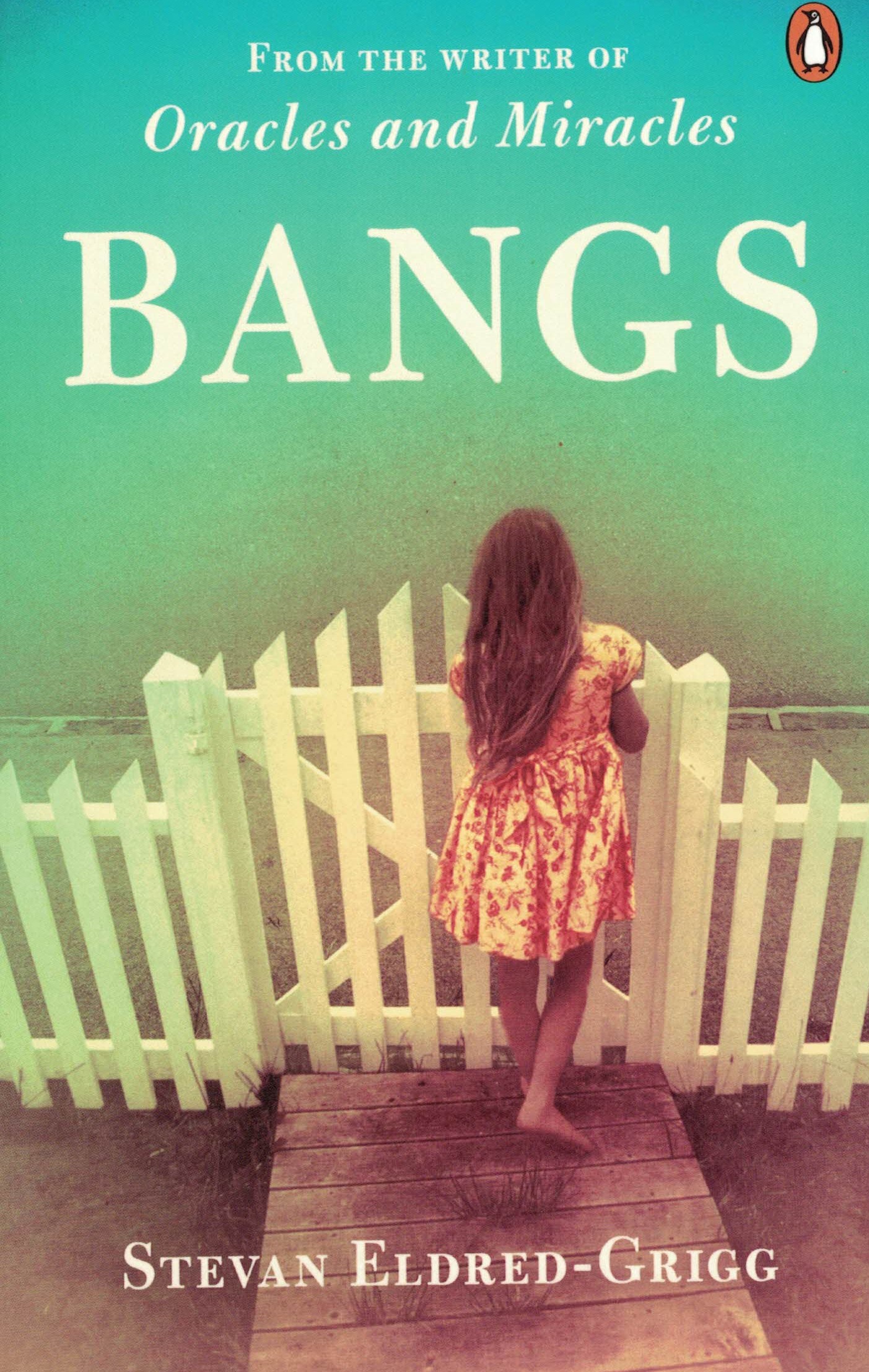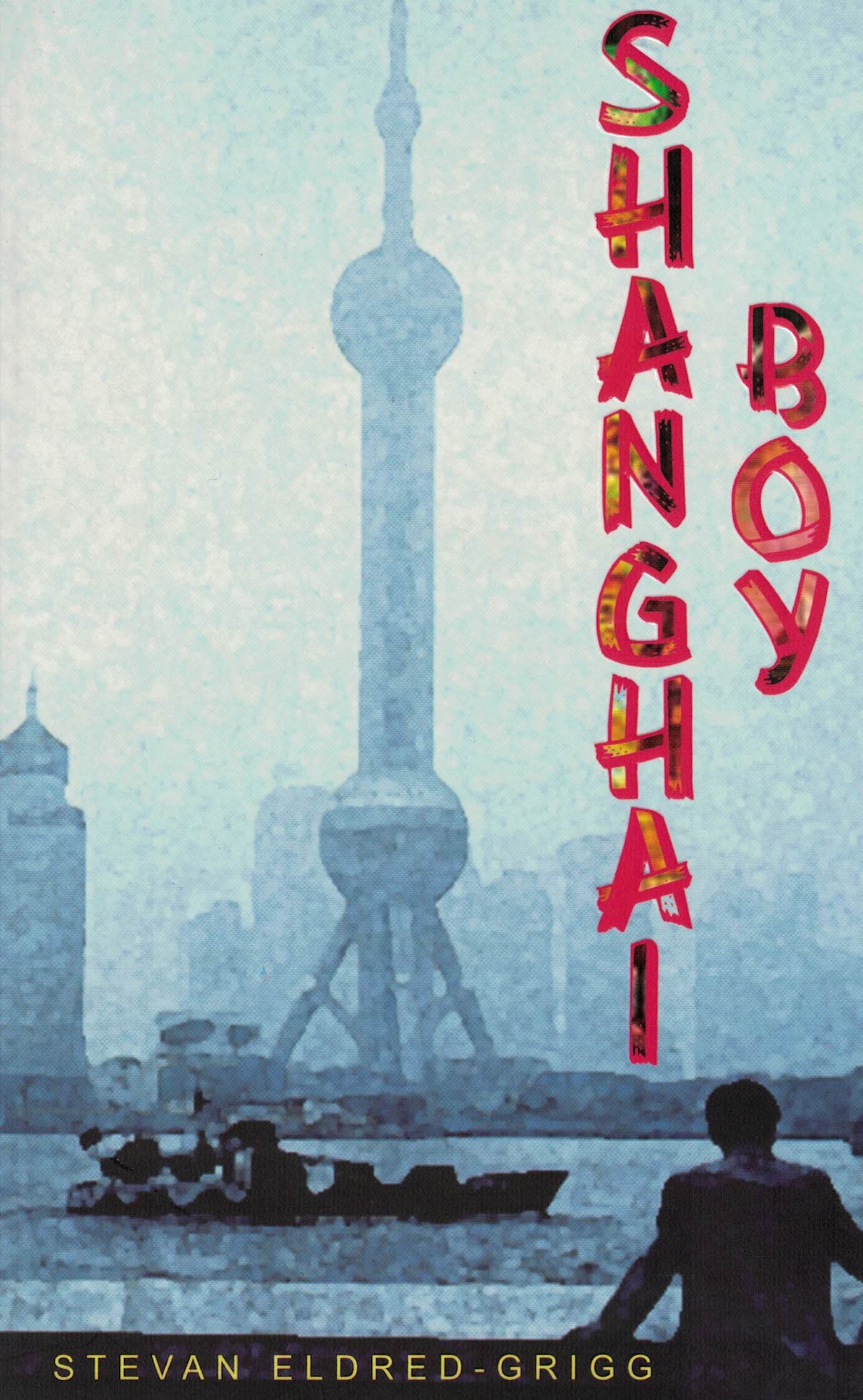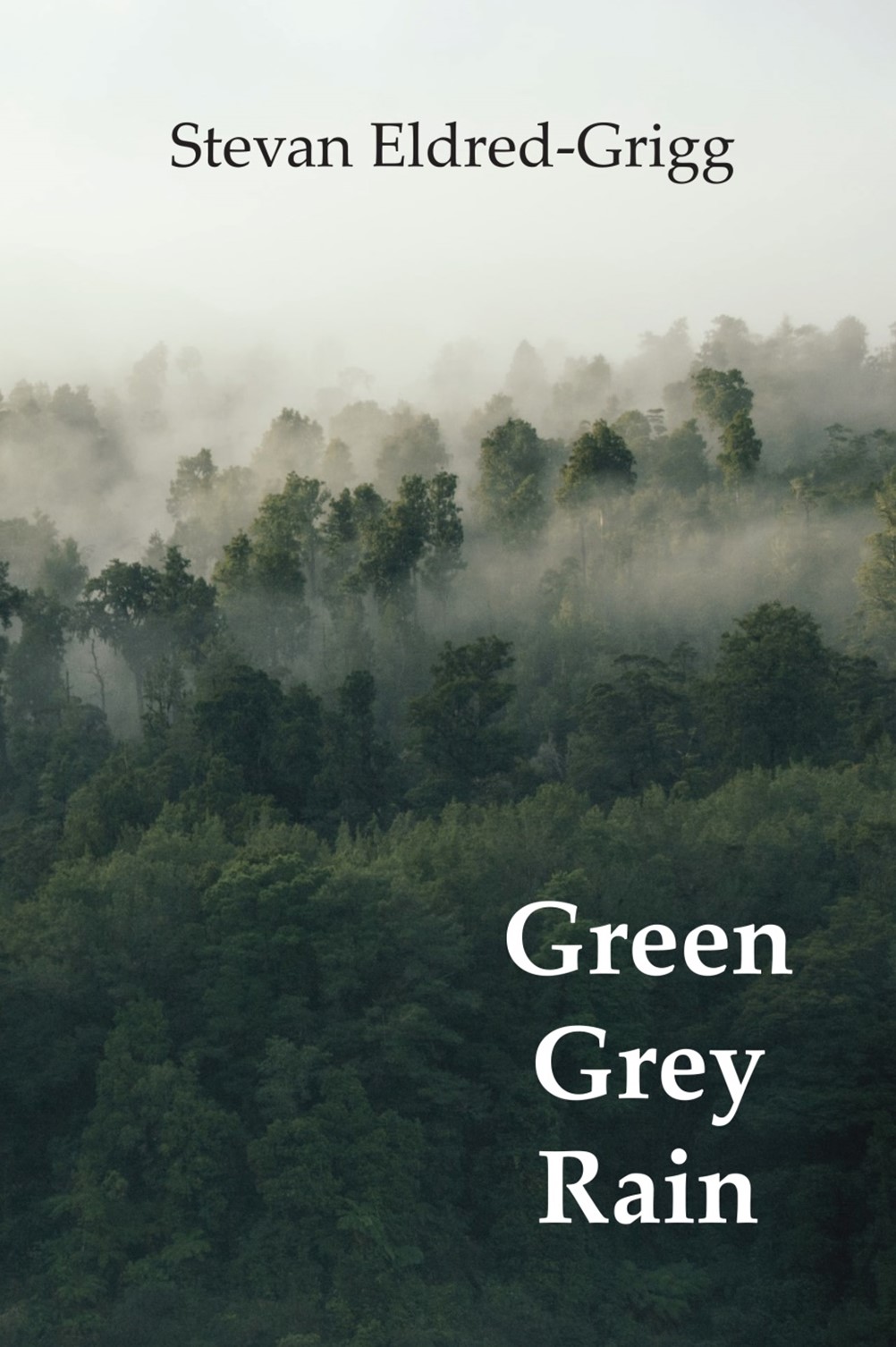Stevan Eldred-Grigg

One of the most widely read novelists and historians in New Zealand.
Winner of the 2020 Blackball Writer's Residency
Winner of the 2019 Janet Frame Literary Trust Award.
Genre:
- Adult Fiction
- Adult Non-Fiction
- Autobiography / Memoir
Skills:
- Competition Judging
Branch:
Wellington
Location:
Wellington
Publications:

Diggers, Hatters and Whores: The Story of the New Zealand Gold Rushes
The gold rushes from the 1850s to the 1870s were the biggest event in the history of colonial New Zealand. Diggers, Hatters and Whores aims to bring to life, through fresh accessible writing and beautiful images, the thrilling and often desperate quest for the ‘royal metal.’ The book opens with a survey of worldwide gold rushes, when for the first time in history a vast army of diggers began to swarm from continent to continent, then looks at the rushes of Golden Bay, Otago, the West Coast and the Thames. Afterwards, various themes of the rushes are examined systematically. Random House, Auckland 2008.
Edmund Bohan: ‘simply the best and most lively overall historical account I have yet come across of the world’s great goldrushes … written in a forthright and racy style.’
Nicholas Reid: ‘capacious, lavishly illustrated and lively … one of the three books of the year I’ve enjoyed most.’
Lawrence Jones: ‘big, rollicking … sweat, scandal, sex and money.’
Michael Field: ‘a tour de force … immensely readable, an important work and an inevitable high flier for book awards.’
http://schroedingerstabby.blogspot.com: ‘Stevan Eldred-Grigg’s magisterial history of the New Zealand gold rushes almost reads like a vast and brilliant novel in the vein of Moby Dick.’
to buy a copy online:
https://www.penguin.co.nz/books/diggers-hatters-and-whores-9781869797034

The Great Wrong War. New Zealand Society in WWI
The First World War was by far the worst catastrophe in the history of twentieth-century New Zealand. The Great Wrong War asks why the country went to war, whether it could or should have pulled out after the first slaughter, and what may have been the true costs. Quick, vivid, democratic and questioning, the book probes social, political and emotional life in New Zealand during those murderous years. The sincerity and the malice, the stubbornness and the yearnings of warring New Zealanders are central to the story. Readers have been polarised by the book.
Deborah Montgomerie: ‘We have been put on trial and found wanting. We went to war for the wrong reasons and did bad things in war’s name.’
Graham Adams: ‘Eldred-Grigg writes with authority and verve.’
Nicholas Reid: ‘shouts, shrieks and bellows … Eldred-Grigg would have us believe that Germany bore virtually no responsibility for the war at all.’
http://bookiemonster.co.nz/: ‘The Great Wrong War has brought up a lot of questions for me about the present – the growing nationalist fervour around Anzac Day, the pervasive myth that we were fighting a “just” war in WW1, the ideas of “sacrifice” and the encroachment upon civil and individual rights in the name of political expediency in a crisis. Packed with illustrations, it’s also a beautiful object of a book.’
to buy a copy online:
https://www.penguin.co.nz/books/the-great-wrong-war-9781775530886

Bangs
Meridee Bang is a perky kid elbowed by a throng of brothers and sisters inside a tiny house in one of the wrong suburbs of Christchurch. Nothing in her life comes easy. Wally her dad, known for poor puns, works at a plastics factory. Gwendolyn her mum, feckless, fierce and funny, broods in her kitchen or lashes out at the kids. The kids swap jokes and smart talk while crowding one of a row of standardised bungalows. Vinyl. Chrome. Acrylic. Meridee hopes that one day she will be rich and pretty like the heroines of 'The Patty Duke Show' or 'The Sound of Music.' As Meridee dances the frug through the swinging sixties, stalks on stacked heels through the seventies and goes for glam in the early eighties, she uses every weapon she can to find the life she wants. But are cleverness, pluck and ambition enough to break free from greasy-walled Olivine Street? Bangs is the fourth novel in Stevan Eldred-Grigg’s well-loved and much-acclaimed Oracles and Miracles series, which together with its companion novels Mum and The Shining City have given life to five generations of the people of Christchurch and Canterbury. Penguin (NZ), Auckland 2013.
Stephanie Johnson: 'Bangs is confessional, sad, true, lit with gallows humour and could only have been written in New Zealand.'
John McCrystal: 'Gwendolyn is a superbly drawn character … few Kiwi novels can claim to have been underpinned by such a mastery of New Zealand social history.'
to buy a copy online:

White Ghosts, Yellow Peril: China and New Zealand, 1790-1950
This is the first book ever to explore all sides of the relationship between China and New Zealand, and the peoples of China and New Zealand, during the whole of the seven or so generations after they initially came into contact. The Qing Empire and its successor states from 1790 to 1950 were vast, complex and torn by conflict. New Zealand, meanwhile, grew into a small, prosperous, orderly province of Europe. Not until now has anyone told the story of the links and tensions between the two countries during those years so broadly and so thoroughly. The reader will find in this book a highly readable portrait of the lives, thoughts and feelings of Chinese who came to New Zealand and New Zealanders who went to China, along with a scholarly but stimulating discussion of race relations, government, diplomacy, war, literature and the arts. Otago University Press, Dunedin 2014.
Denis Harold: ‘White Ghosts, Yellow Peril is a brilliantly researched and presented history. Full of the accumulated energy of the past, it is a generous resource for the future.’
Paul Diamond: ‘Lovely writing.’
Jiang Ding: ‘A work of wonderful scope, sharp insight and deep humanity.’
Helen Wong: ‘This books covers superbly the early political history of New Zealand-Chinese relationships.’
to buy a copy online:

Phoney Wars. New Zealand Society in WWII
A lively social history arguing that New Zealand had no business going to war against either Germany in 1939 or Japan in 1941. The motives for doing so were muddled and contradictory. Also the country was never in danger of being bombed by any ‘enemy’ air force or invaded by any ‘enemy’ army. Phoney Wars questions the war as a story of ‘good’ against ‘bad.’ Everyone knows the Axis powers behaved ruthlessly, but how many are aware of the brutality of the Allied powers in bombing and starving not only Axis but even Allied peoples? New Zealand colluded in and helped carry out such brutal aggressions. Were we, in going to war, really on the side of the angels?
‘Ultimately there was no compelling reason for New Zealand to involve itself in the war … All military effort by the dominion was more or less meaningless. New Zealand could have enjoyed the blessings of its safety without going onto a gruelling and wasteful war footing.’
Otago University Press, Dunedin 2017.
to buy a copy online:

Oracles and Miracles
Oracles and Miracles tells the story of Ginnie and Fag, two girls wishing and hoping, hurting and joking, while growing up in poverty. One of the bestselling novels ever published in New Zealand, it is widely loved by readers and has been incorporated into the syllabus for secondary schools and university. Oracles and Miracles also has been adapted both for stage and radio, playing on Radio New Zealand, the Australian Broadcasting Corporation and the Central Broadcasting Company, Taiwan. The most recent staging of the play was in 2019, in Los Angeles. 'When we were kids,' writes Fag, 'Ginnie and I invested our lives with a sort of dark, eternal significance ... we thought, This is Our Place of Suffering.'
Lauris Edmond: 'I don't remember reading another novel that has given me such a strong sense that the significance of life has to be fought for through its everyday trivialities.'
Michael King: 'Its technique is innovative; it is understatedly dramatic, believable and moving.'
Judith Brett: 'I find it hard to think of a contemporary Australian novel which treats the complex and contradictory relations between work, sexuality, family life and class in as sophisticated and unromantic a way.' Penguin (NZ), Auckland 1987, 2010
to buy a copy online:
https://www.penguin.co.nz/books/oracles-and-miracles-9780143007333

Shanghai Boy
‘Age, no problem! Gender, no problem. Constellation, no problem. Body, sex, race, all no fucking problem. Feeling, you know! Feeling! That is everything.’ Shanghai Boy explores fathers and sons, passion and Shanghai. A leathery old dad is slowly dying of cancer in New Zealand. His son, who has just hit fifty, falls fiercely in love with a young man, one of his students, at a university in China. The young man goes missing. The old dad dies. Has there been a murder? Two murders? The city of Shanghai increasingly takes centre stage: a city of crowded streets and clouding smog; motley smells and mindless noise; a complex and contradictory place that leaves the middle-aged son both horrified and aroused. Shanghai Boy is the first novel by any New Zealand writer to focus on the lives of ordinary people in contemporary China. Random House, Auckland 2006.
Ian Williams: 'A family saga, thriller, travelogue, love story and an education, Shanghai Boy is definitely value for money.'
Iain Sharp: 'There are continual reminders in Shanghai Boy of Eldred-Grigg’s exceptional gifts as a writer.'
Warwick Roger: 'Shanghai Boy could be New Zealand’s most explicit gay novel.'
to buy a copy online:

Oracles and Miracles and Zombies
Zombie pandemic ravages New Zealand! We all know about the zombie virus that ravaged New Zealand between the two world wars, but little has been written about how the biters it created affected the lives of women, especially working-class women. Stevan Eldred-Grigg’s bestselling novel about twin sisters growing up during the Depression has been updated by Madden Hay to include the previously ignored and despised minority, zombies. A black comedy, the story shows us how the sisters, their sharp and shrewd mother and many other women struggle to avoid being bitten by biters, care gingerly for hunches who don’t want to eat their brains (yet) and watch as the ‘cured’ lurkers start to take their jobs. Even in times of pandemics, girls still grow up, worry about boys, go out to work, get married and have babies, all while trying to keep their brains safe inside their skulls. At the beginning the twins are small, fearful and helpless. By the end of the story they’re armed and ready to go after the enemy. But who is the real enemy?
to buy a copy online:
https://andzombies.weebly.com/

Pru Goes Troppo
Pru lives quietly but luxuriously on a country estate in Canterbury. She has been married to Guy for a quarter of a century. She hasn’t had sex for ten years. ‘Why the hell do I live my life this way?’ she says to herself. ‘I mean – really!’ Change comes from out of the blue when odd old Uncle Bertie dies in Samoa and leaves his property to Guy. On a whim, the couple decide to go and take a look at what they know must be a tropical paradise. Not their usual stamping ground, you understand. Daringly, they fly to Apia. Pru soon finds herself thinking things, feeling things, doing things she’s never till now come close to thinking, feeling, doing. ‘Are we just an ornamental waste of space, d’you think?’ she asks Guy one day in Samoa. ‘I rather think we are, darling.’ Pru goes troppo is a comic novel about the ups and downs of two people who are privileged parasites, yet curiously innocent.
‘Eldred-Grigg has a sharp eye for social mores and the habits of love and family. A super story about rashly setting off on a mid-life adventure in a totally new culture. For Pru and Guy, things might never be the same again.’ Tina Shaw
to buy a copy online:
http://www.piwaiwakapress.org/our-books.html

Green Grey Rain
Rain on iron rooftops. A radio streaming the latest hit songs. It’s the early 1950s. The baby boom. Valerie is a talkative, singing, slanging, pregnant daughter of the slums. Gilbert, her husband, is the well-spoken son of a landed family. They already have three kids. Gilbert has just taken a job as paymaster at a coal mine. The family is about to start life in a green and black and red township on the West Coast.
A little boy is born, almost in a taxi, and named Stevan.
Green Grey Rain tells the story of the first years of that little boy. A story told by Stevan. A story told too by the hit songs he hears on the radio. And a story told by Valerie – who, with her sister, has already spoken to us in the pages of Oracles and Miracles. A story of working and playing, dreaming and singing, crying and laughing, hoping and wishing, bush, rain, rust, and the sooty streets of Blackball.
to buy a copy online:
